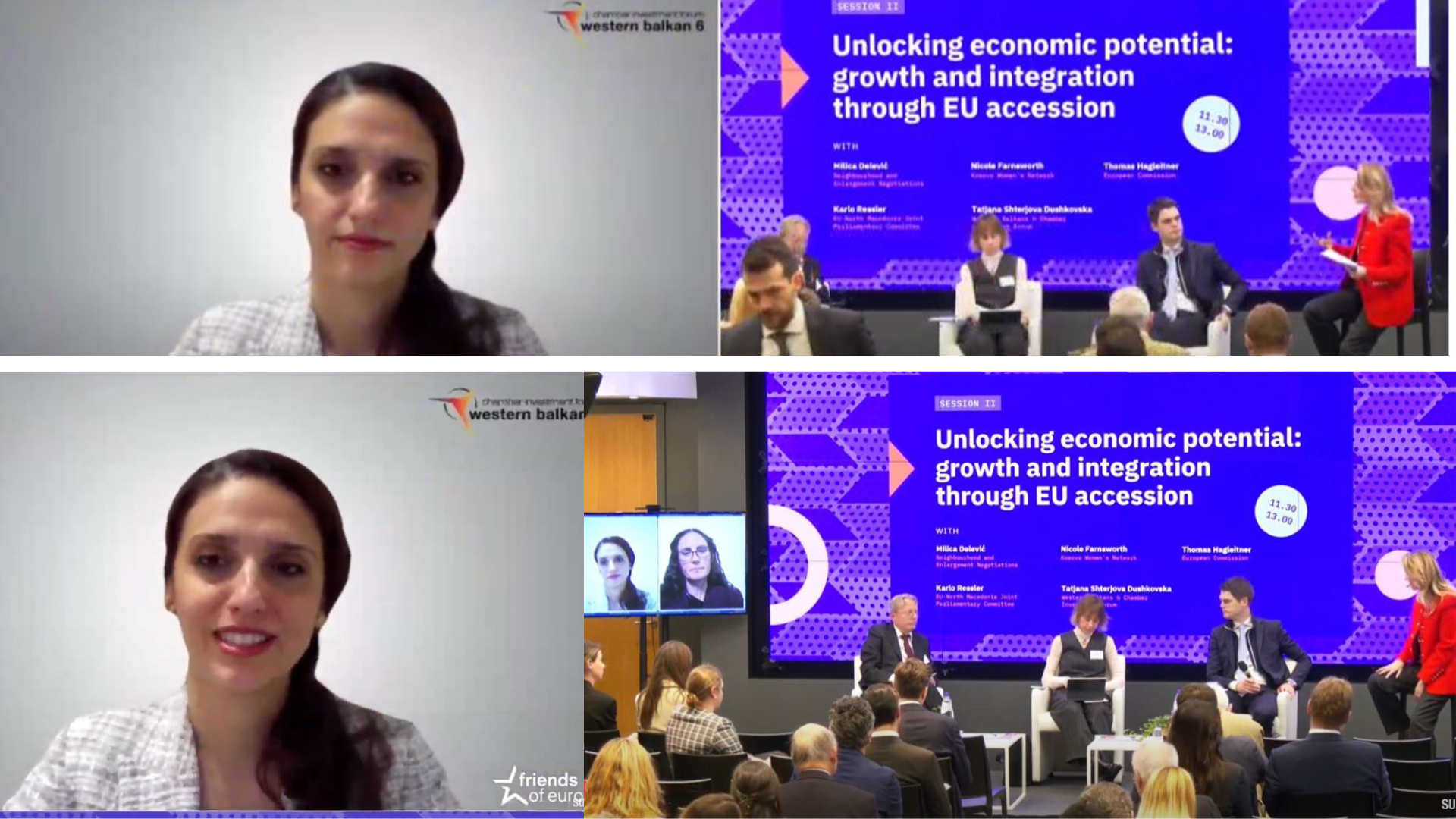
Secretary General of WB6 CIF Tatjana Shterjova Dushkovska at the EU-Western Balkans Summit: a renewed approach to the region
Ms. Tatjana Shterjova Dushkovska, Secretary General of the WB6 CIF, participated as a speaker during Session II: “Unlocking economic potential: growth and integration through EU accession” at the EU-Western Balkans Summit: a renewed approach to the region.
The EU-Western Balkans Summit 2024, held in Brussels on December 5, brought together key figures and leading voices to also address the broader implications of EU enlargement on the Union’s long-term goals and to strive toward building a cohesive and comprehensive strategy for integrating the region into the EU.
This year’s Summit aimed to redefine the dialogue on EU enlargement, focusing on the accession of Western Balkan countries through an inclusive and innovative approach. The Summit was structured into three sessions, each addressing key aspects of the Western Balkans’ path toward EU integration.
The New Growth Plan for the Western Balkans offers a roadmap for fostering economic convergence, enhancing regional cooperation, and integrating with the Single Market. The economic future of the Western Balkans cannot be envisioned without considering the private sector’s role, both within and outside the region. Understanding how businesses perceive economic trends, growth prospects, and the capacity for local versus external investment is crucial. These insights will help shape the direction of development initiatives and influence the region’s integration into the European and global economy.
Our Secretary General provided a business perspective on the region’s progress in reforms, intra-regional trade, and trade with the EU. Discussions addressed whether enough is being done to increase trade within the region, and the steps needed to create a competitive Western Balkans investment pool. Additionally, the impact of emigration and brain drain on the business climate in the Western Balkans was discussed, emphasizing its role in shaping economic potential and workforce sustainability.
Key Insights from Our Secretary General:
Ms. Tatjana Shterjova Dushkovska highlighted the need to overcome market fragmentation to unlock the economic potential of the Western Balkans. A unified market of 18 million consumers offers far greater growth opportunities compared to fragmented markets.
In the framework of ongoing efforts to enhance regional economic integration the barriers and the challenges faced by businesses have already been identified, including the long waiting times at the borders, the non-recognition of certificates or electronic signatures. These have all been addressed and have received attention in relevant documents
As very big milestone which set out the scene, Ms. Tatjana Shterjova Dushkovksa, underscored the focus of the regional cooperation as one of the main pillars of the growth plan and the importance of having adopted the New Action Plan for the Common Regional Market.
The challenges to enhancing regional cooperation and the specific needs of businesses have been identified, with a detailed, time-framed structure now in place. Business involvement remains crucial as key beneficiaries, ensuring their role in shaping, monitoring, and implementing the process.
In addition, to better position Western Balkan economies on the investor map, it is essential to enhance regional cooperation and overcome market fragmentation. Removing barriers that hinder business cooperation and slow growth is key to increasing the region’s attractiveness as an investment destination.
Furthermore, regarding the impact of emigration and brain drain the Secretary General of WB6 CIF explained that the focus is on upskilling workers to support the economic transition in the region and bridge the convergence gap, while also creating opportunities for them to build their careers within the Western Balkans rather than seeking opportunities abroad.



